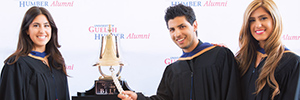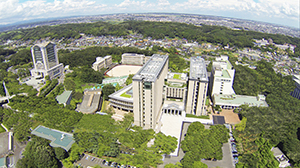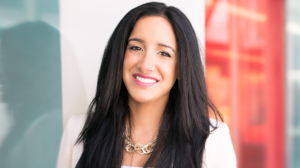- Future Students
- Current Students
- Faculty
- Staff
- Alumni
- Others
UofGH students present research at Soka University of America
A group of fourth-year University of Guelph-Humber students recently presented at this year’s Soka Education Conference, held at Soka University of America in Orange County, California. At the conference, the students shared their research on experiential learning and how it relates to Soka (or value-creating) education.
Soka research at UofGH
The trip was part of the Soka Education Research Initiative on Global Citizenship (SERI-GC) – a five-year research project that allows UofGH students and faculty to study the philosophy and practices of Soka education and how it connects to global citizenship.
This trip marked the students’ second trip to Soka University of America, but was the first time they presented at the conference.
For their research project, titled Framing Postsecondary Instructor Perspectives on Experiential Learning within Soka Education Theory, the students interviewed UofGH instructors who teach courses that involve experiential learning.
“Soka education is very much tied into experiential learning,” says Dr. Paul Sherman, Family & Community Social Services Program Head and director of SERI-GC. “For our research project, we wanted to marry Soka theory – value creating theory – with experiential learning.”
He says the students’ research was well-received by the conference attendees, which included Soka education experts. “I couldn’t have been happier with how the students presented,” says Dr. Sherman. “You can tell at a conference if an audience thinks the research is good. The audience asked deep, relevant questions, and the students stepped up and answered them,” he says. “It speaks well to the students’ skills, but also speaks well to how well they were trained at the University of Guelph-Humber to get to that stage.”
Student views
For the students, it was a memorable experience they won’t soon forget. Here are some of their reflections on the trip and their research.
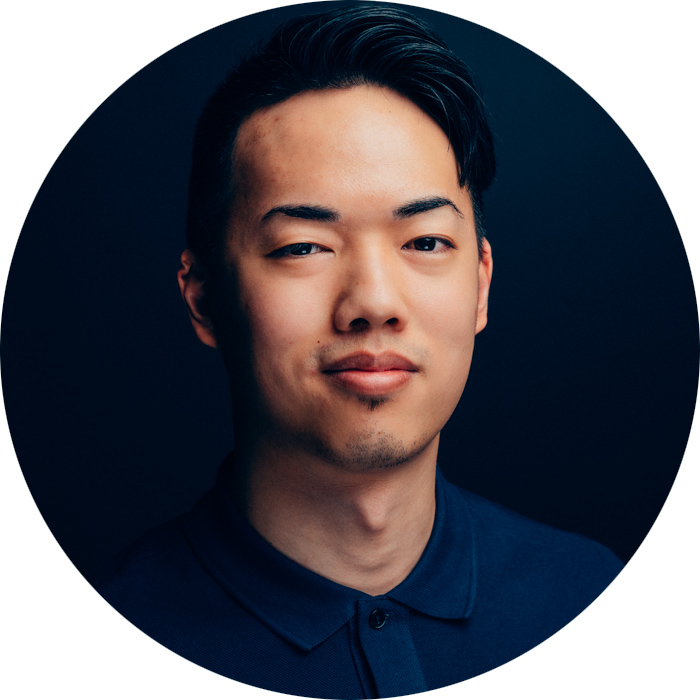
I had so much confidence in my team throughout this process, and presenting with them was the icing on the cake.
Denny Tran, Fourth-year Kinesiology
Why did you decide to participate in this research project?
I had prior knowledge of Soka education during my study abroad trip to Japan in 2017, but it felt incomplete. That’s when this opportunity popped up and I couldn’t refuse it. I went into this project ready to learn more about experiential learning, and how it can be implemented in our schools and in my future profession as a high school teacher. I also wanted to participate in a research study and bolster my resume.
What did you enjoy most about this research project?
I enjoyed interviewing the professors! They are so passionate about their work and were happy to participate in our study. At first, it was intimidating because I was interviewing professors outside of my program. However, the interviewees were light-hearted, and it was fun listening to them sharing their knowledge and ideas. After the interviews, I had a better understanding of what goes on at Guelph-Humber, and how different programs use experiential learning as a tool for student engagement.
What was the highlight of the trip?
I had so much confidence in my team throughout this process, and presenting with them was the icing on the cake. This project grew from a bunch of ideas on a whiteboard to something concrete, and that is an amazing feeling.
Looking back on the experience, I am so proud of our team, and I believe we did amazing work that the students in subsequent years can build off of.
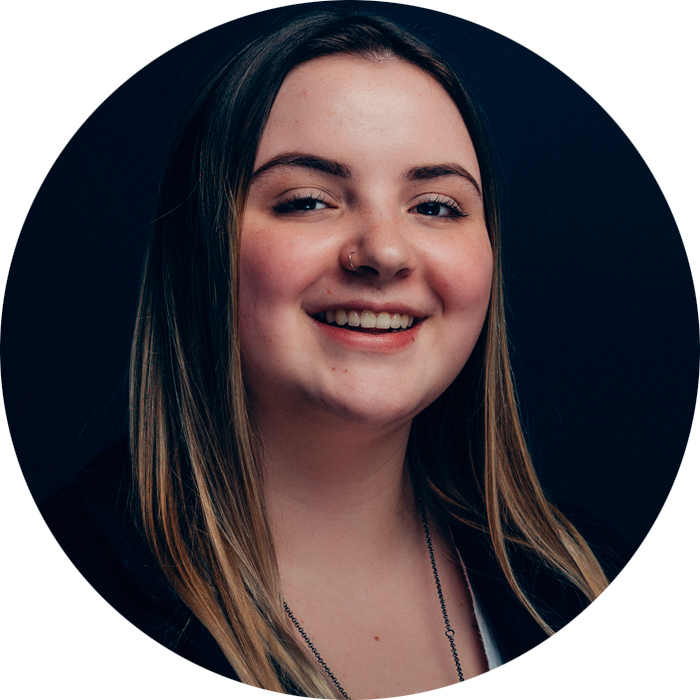
Amy Piercey, Fourth-year Family and Community Social Services (FCSS)
Why did you decide to participate in this research project?
I wanted to be a part of the Soka Education Research Initiative on Global Citizenship (SERI-GC) for a number of reasons. I wanted to be a part of an undergrad research project to build my resume, as well as contribute to something I believed was meaningful. I had minimal knowledge on Soka education when I began the project but, from what I did know, I knew it would be a philosophy I would want to continue learning about even after the project was complete.
What was it like presenting at the conference?
This was my first time presenting at a conference, and I found it nerve-racking. I believe I was so nervous because it was something we all put so much work into, and I wanted the people listening to our presentation to find value in our work. Now, looking back on the experience, I am so proud of our team, and I believe we did amazing work that the students in subsequent years can build off of.
What did you take away from this experience?
For me, this experience meant more than just research. Soka education and global citizenship have become a part of me, and I will carry this experience with me throughout my career and onward. Learning about Soka inspired me to go on a study abroad trip to Japan last May, where I learned even more about Soka education and how it is practiced in another culture. I am so inspired by all of my experiences with Soka education and I am very excited for the future SERI-GC team and what research they will contribute to the initiative – I will definitely try to keep updated on it!
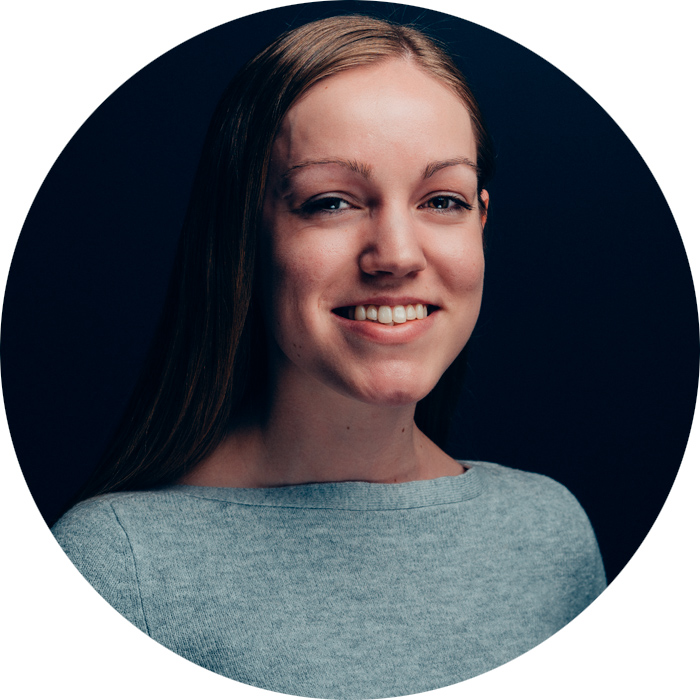
We were able to spark a meaningful dialogue about a topic we’re passionate about – how cool is that?
Neve Connolly, Fourth-year Family and Community Social Services (FCSS)
What was it like presenting at the conference?
Presenting our findings at the conference was an amazing experience. It was a bit intimidating at first, but the students and faculty at SUA are so welcoming and friendly. The attendees and other presenters congratulated us for being there and were curious to hear our findings. We enjoyed presenting and answering people’s questions. It felt like a lot of responsibility to be representing UofGH on an international level. However, our findings regarding experiential learning and the unique college/university model were well received by those we engaged with.
What was the highlight of the trip?
My highlight was our team being able to answer all of the questions asked during our Q&A without having to say “I don’t know." That was one of our biggest fears prior to our presentation, because we were unsure what the attendees would ask. I’m so proud of us for being able to thoughtfully answer each question.
What did you take away from this experience?
Research takes a lot of time and effort, but it is all so worth it when you get to read the final draft and see it all come together. Then having the opportunity to present our hard work to people who have no stake in our project, but are simply curious about our research, was a feeling I won’t soon forget. We were able to spark a meaningful dialogue about a topic we’re passionate about – how cool is that?
Participating in this project taught me so much, from technical research skills to learning more about my own interests in global citizenship and Soka Education.
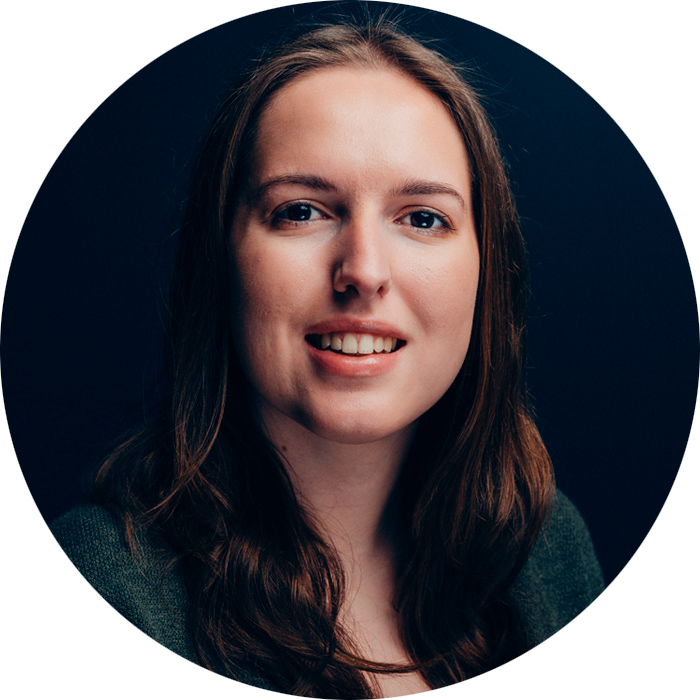
Kathryn Johnson, Fourth-year Media Studies
Why did you decide to participate in this research project?
I decided to apply for this project because I'm really interested in global citizenship – a passion that was born out of living abroad in France during high school. Learning about Soka Education was also really interesting because it's very similar to a program I was in during high school as well.
What was the highlight of the trip?
The highlight was presenting our actual research, because it was received so well by the audience and they were very engaging and impressed with what we had done at the University of Guelph-Humber. It was so nice to wrap up our project by sharing it with a lot of people who helped inspire it in the first place.
What did you take away from this experience?
Participating in this project taught me so much, from technical research skills to learning more about my own interests in global citizenship and Soka Education. It was so great to collaborate with faculty and students from other disciplines because we all brought different lenses to the research, and ultimately I think that diversity really strengthened our project.




